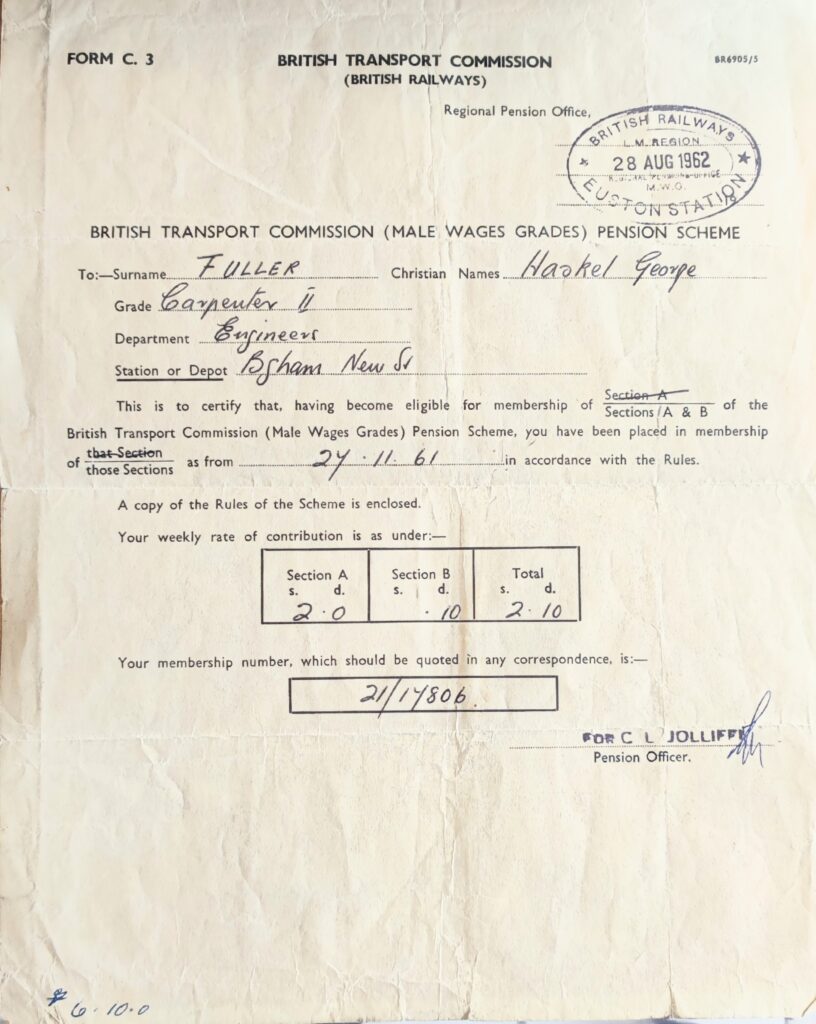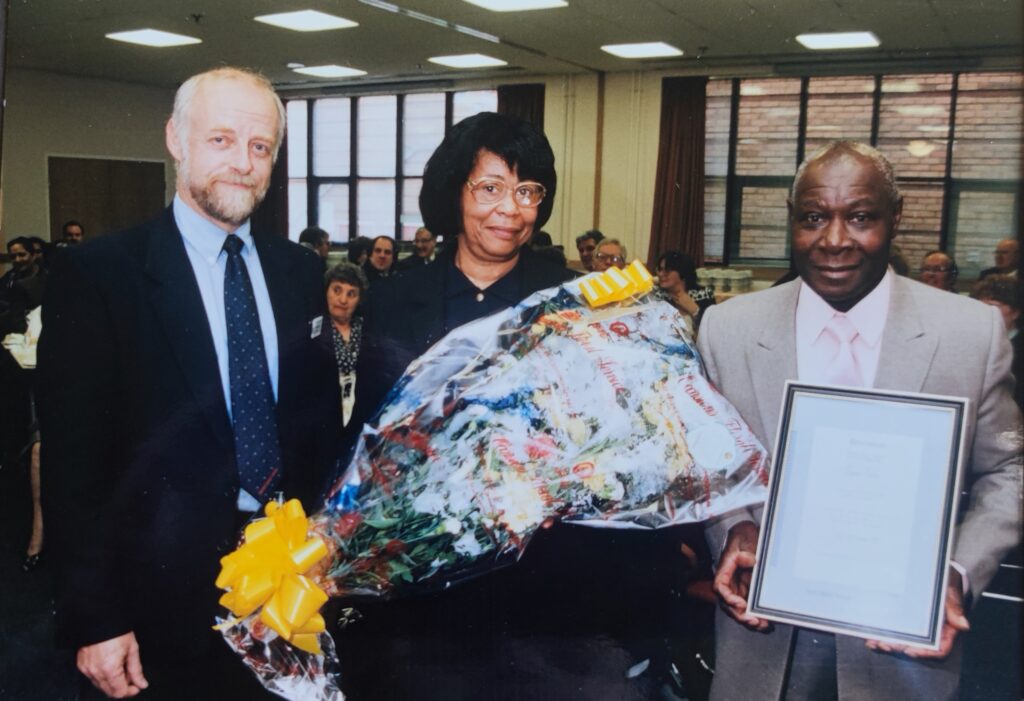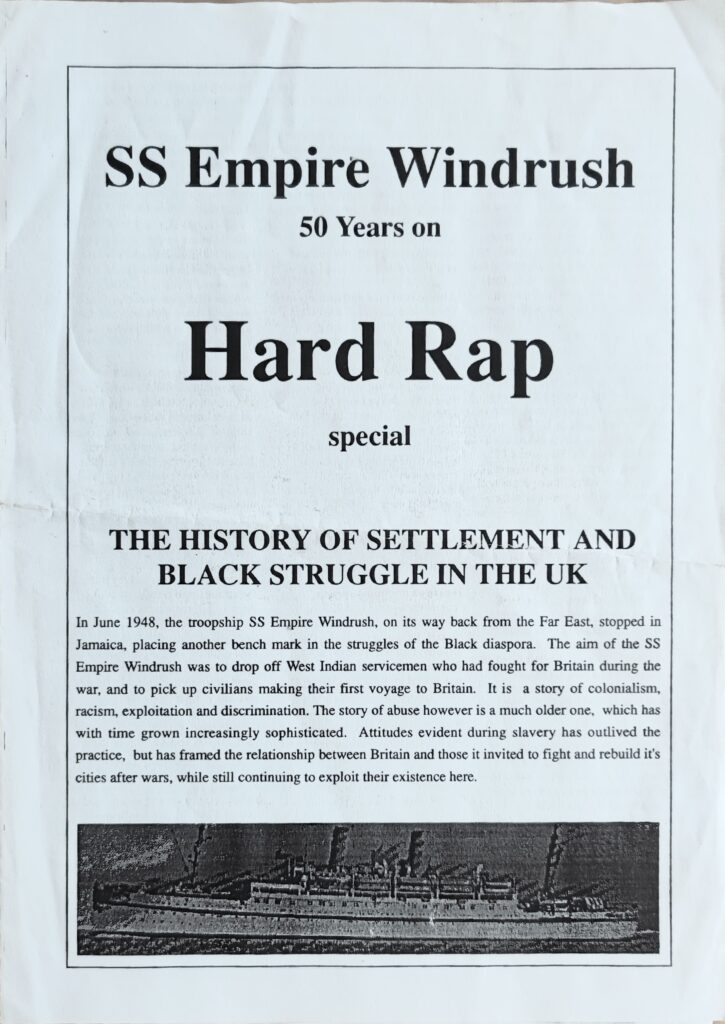Windrush Day and Black Birmingham History
“Black History doesn’t just happen on ‘Windrush Day’ or in ‘Black History Month’, so why’s it important we mark it?”
To answer this, context is everything. Patrick Vernon launched a petition for an official Windrush in 2013, which was followed by campaigning leading to official government recognition in 2018 (at the height of the Windrush Scandal). Patrick was born in Wolverhampton – the constituency where Enoch Powell was an MP. His family still lives in Wolverhampton and he is proud of his roots and the contribution of migrant communities from the Windrush Generation have made to Britain.
To mark 75 years since Windrush landed in the UK, People’s Heritage Co-operative worked with Shades of Black and other partner organisations ‘Meeting Windrush’ in Handsworth, Stechford and across the city. As part of this I had the opportunity to explore our City Archives, meet, interview and work with our Windrush Generation,.
In the late 2000s I worked in Birmingham Libraries and Schools raising awareness of Black History. Initially School resources focused on American Black History. In the course of time Black History in schools began to include celebration of more famous British Black figures too, like Sir Trevor MacDonald, Sir Ian Wright and Dame Floella Benjamin, but still with less celebration or awareness of the people of the Windrush generation living side by side us in Birmingham.
For Meeting Windrush we worked in Primary Schools and Libraries with hundreds of young people and living legend Mrs. McGhie-Belgrave MBE and other members of ‘Shades of Black’, an organisation founded following the Handsworth riots to done to ‘reconcile, reassure and rebuild the community’. Not many young people knew the Windrush story, but by the end their questions demonstrated a depth of understanding and resonance with their own and their parents lives and experiences:
- Did they fund the people who came in the Windrush generation?
- Why weren’t the Jamaicans welcomed in England?
- Were you surprised, were you quite shocked with the racism when you came here?
- How much has it changed?
- Do you think it’s easier now to come to the UK?
- What would have happened if you weren’t quiet and calm, would you still be here today?
- Did you have many friends who got mistreated when you came to the UK?
- How did you feel knowing you were going to be back with your husband in England?
- When you came here did you come with any other relatives? Did they travel to see you?
- How did you feel about the way Windrush Generation were treated?
- How can we get involved and work with you?
- How did you start to help people?
- Do you think you are luckier than other Black people?
- Are you happy with the way Britain is now?
Windrush Day matters because it celebrates the achievements and values of post-war immigrants in Britain, and because it recognises the difficulties and racism they and their families have faced, then and now. Official backing means Birmingham City Council and UK Government support celebrations of ‘Windrush Day’ on 22 June each year and supported by a grant to recognise and honour the contribution of the Windrush Generation and their descendants.
‘Black History Month’ is a little older than ‘Windrush Day’ and first celebrated in the UK in 1987. Founded by Akyaaba Addai Sebo after he visited America in the 1970s, from the very beginning campaigners wanted black history to be included in the curriculum in the UK and not just celebrated in October, an ambition not yet achieved.
‘Windrush Day’ and ‘Black History Month’ play an important role in recognising injustice and racism, historic and still very much present, as well as valuing the contribution of people of colour and immigrants in the UK. I hope it will continue to open conversations, challenge our perceptions of racism and act as a lobby for the changes we need.
Thanks to Mrs McGhie-Belgrave MBE, all members of Shades of Black, our friends at Friction children and staff at Corpus Christi RC Primary, Stechford Primary and everyone involved in the project. Photography thanks Soheila Javaheri and Marcus Belben
Also thanks to all the Windrush75 projects and Birmingham City Council, Neighbourhood Development & Support Unit, our funders.
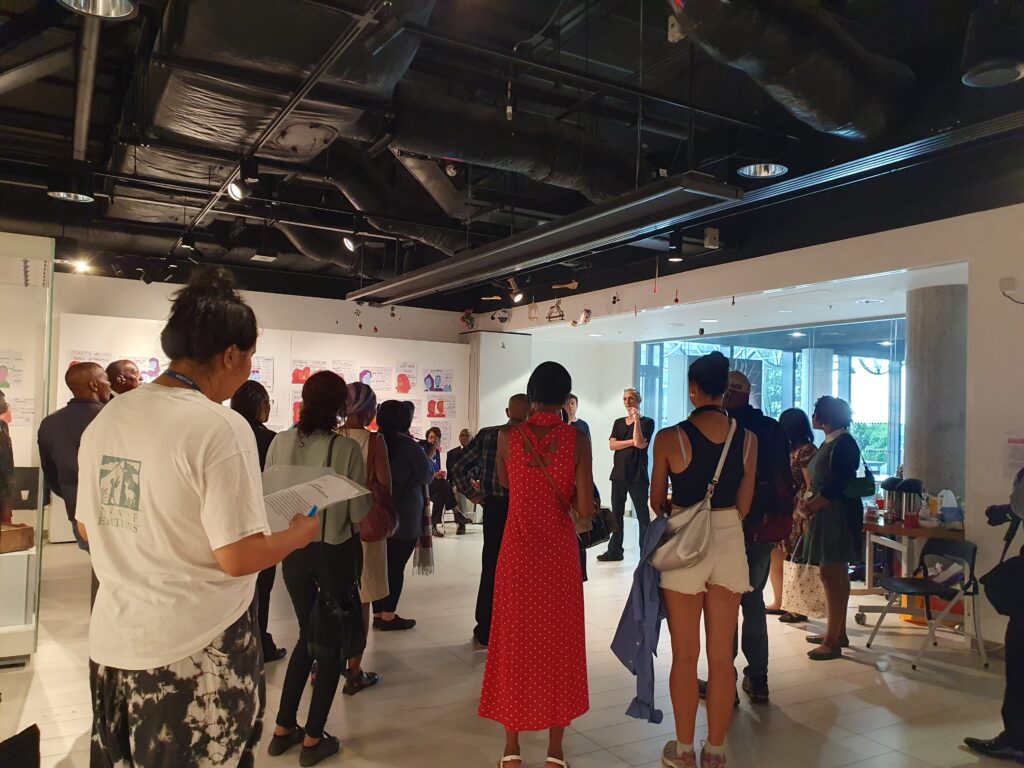
Mrs McGhie-Belgrave ‘Meeting Windrush’ at the Library of Birmingham 22nd June 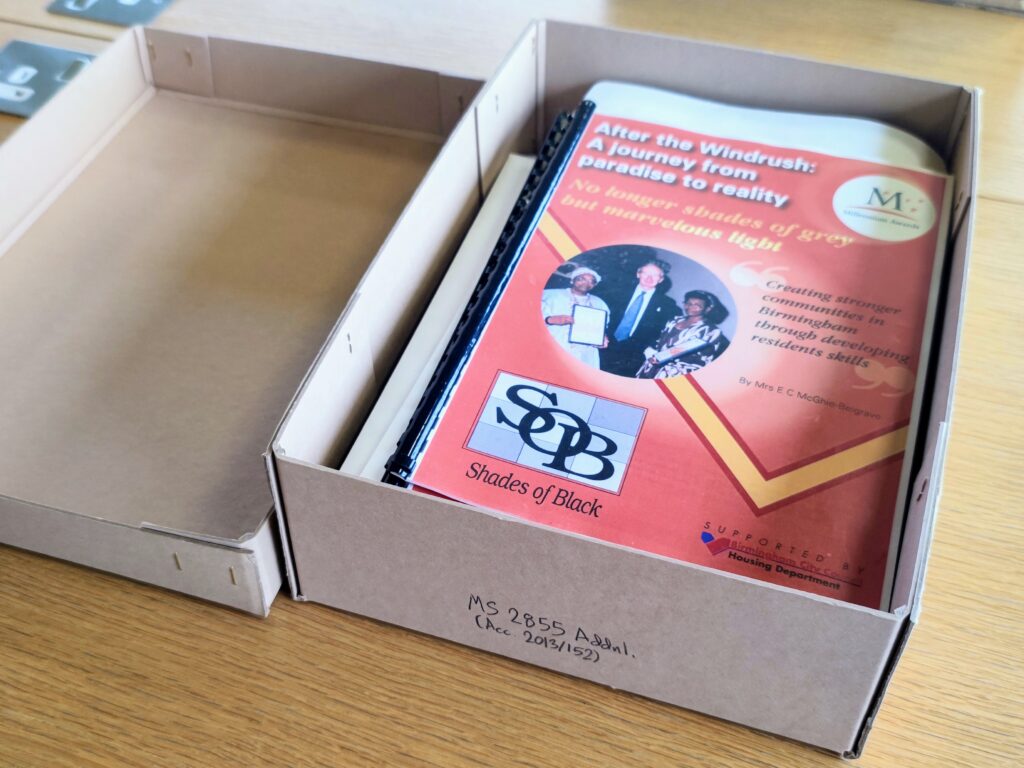
‘Beyond Paradise’ – one of many archives digitised and catalogued as part of ‘Meeting Windrush’ 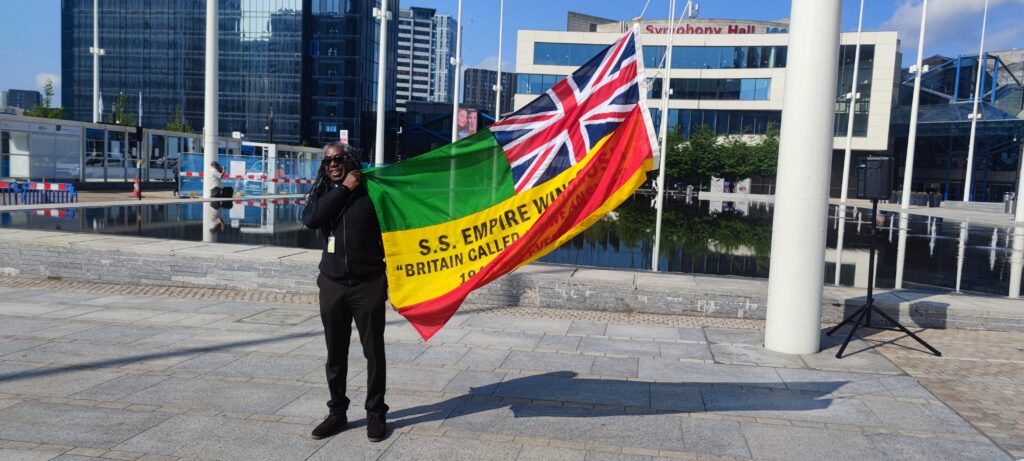
Raising the Flag – the opening of Windrush 75 in Birmingham 
Saleem, Handsworth Librarian, meets Windrush Generation at his Library 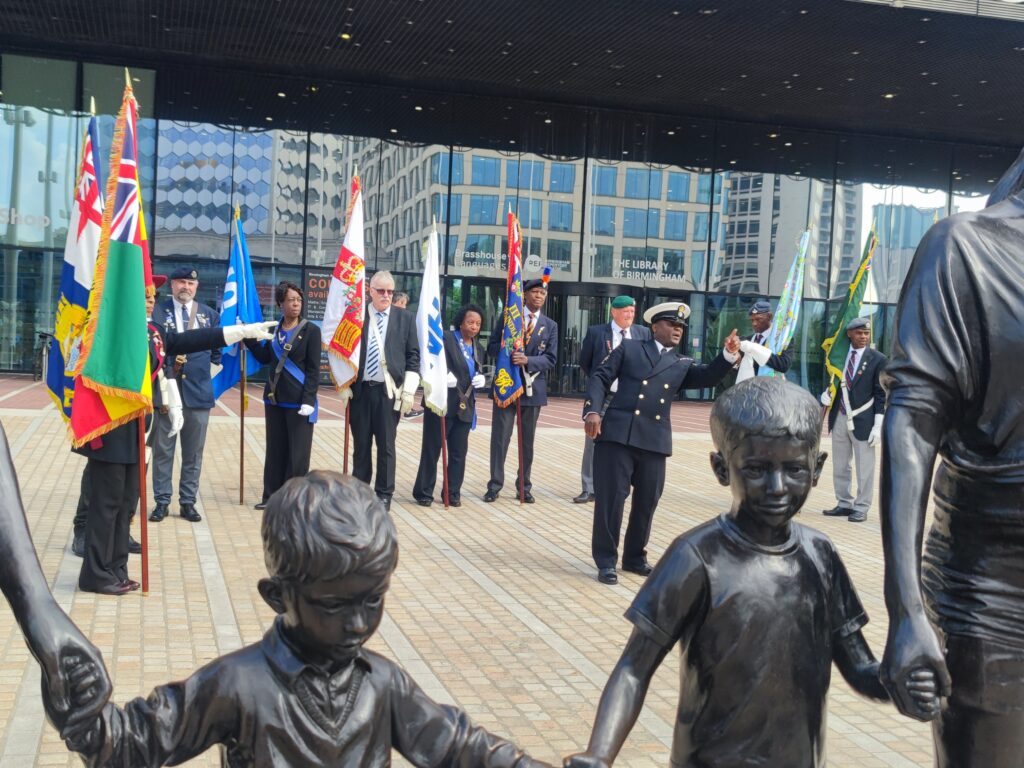
Flags representing all Birmingham Services outside the Library for Windrush 
The formal raising of the Windrush flag 
Mrs. McGhie-Belgrave MBE presents to pupils about Windrush. They explore her archive and prepare short pieces about their experience and understanding of Windrush 
Exploring Windrush in the Library of Birmingham 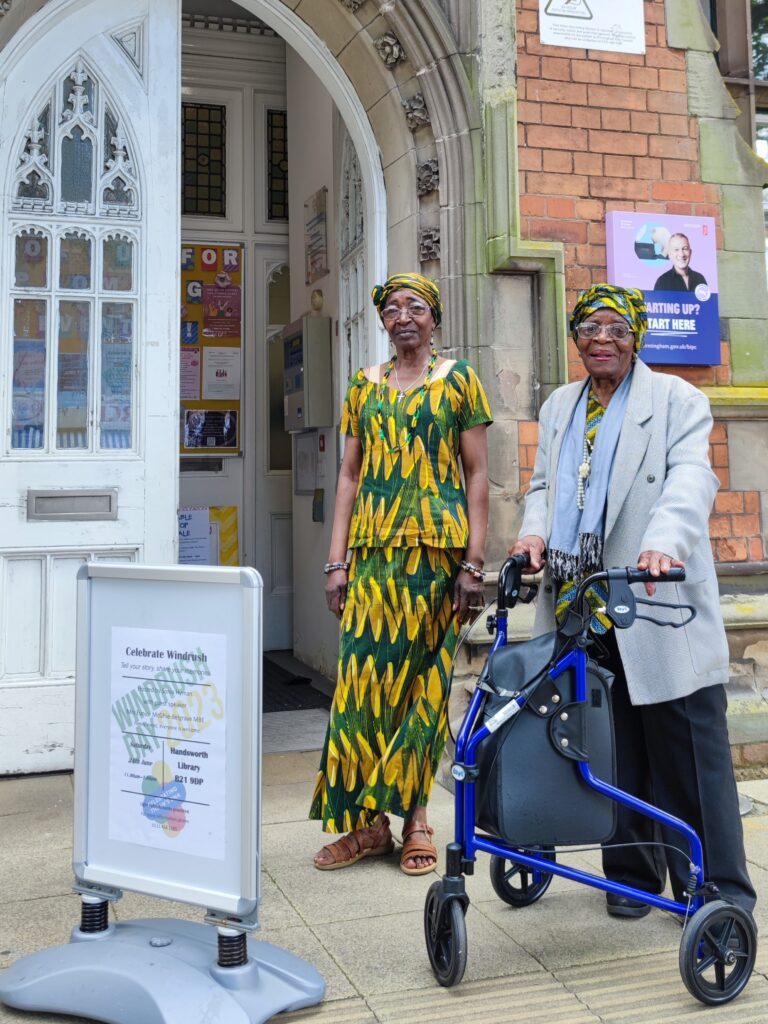
Shades of Black visit Handsworth Library 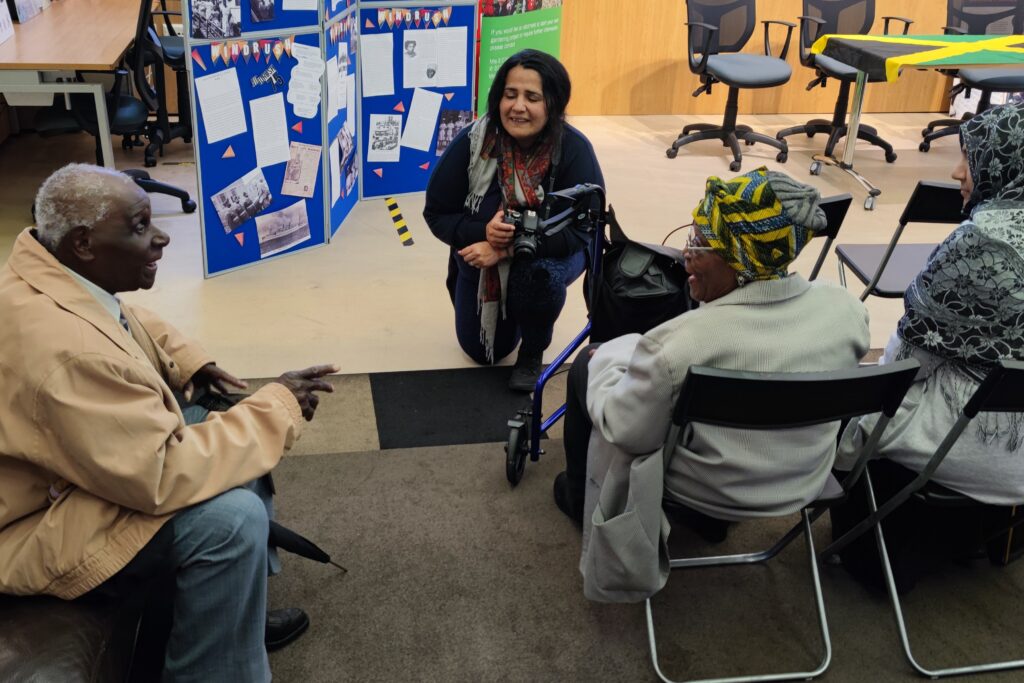
George discusses Windrush 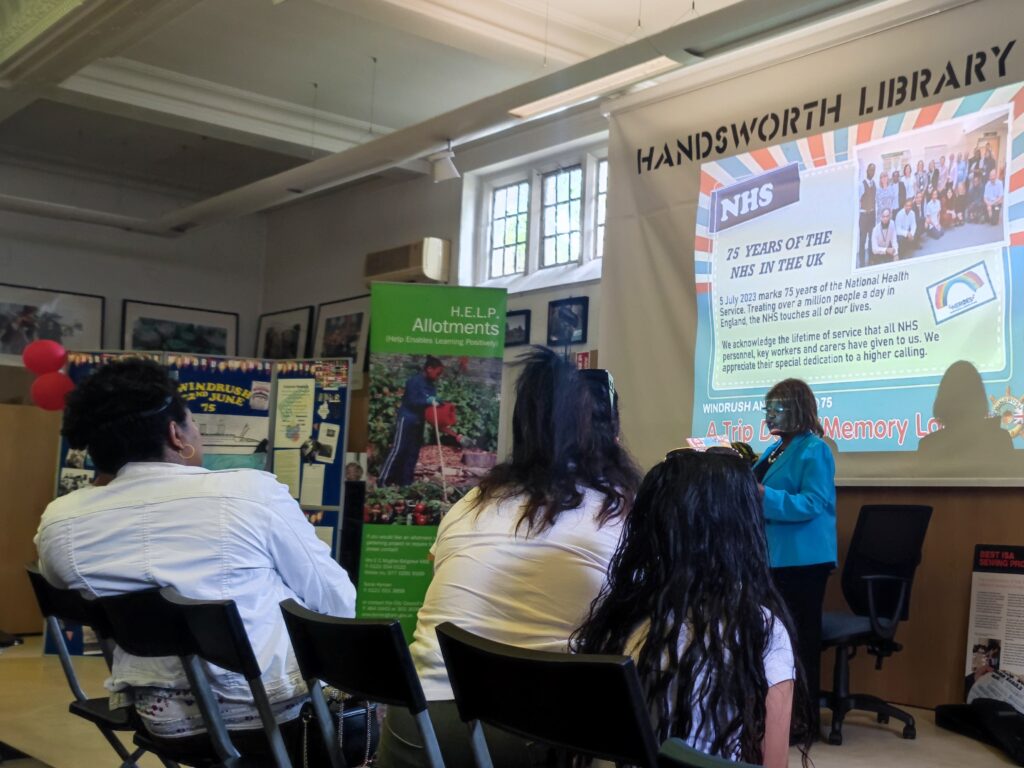
Councillor Quinnen presents her Windrush connection at Handsworth Library 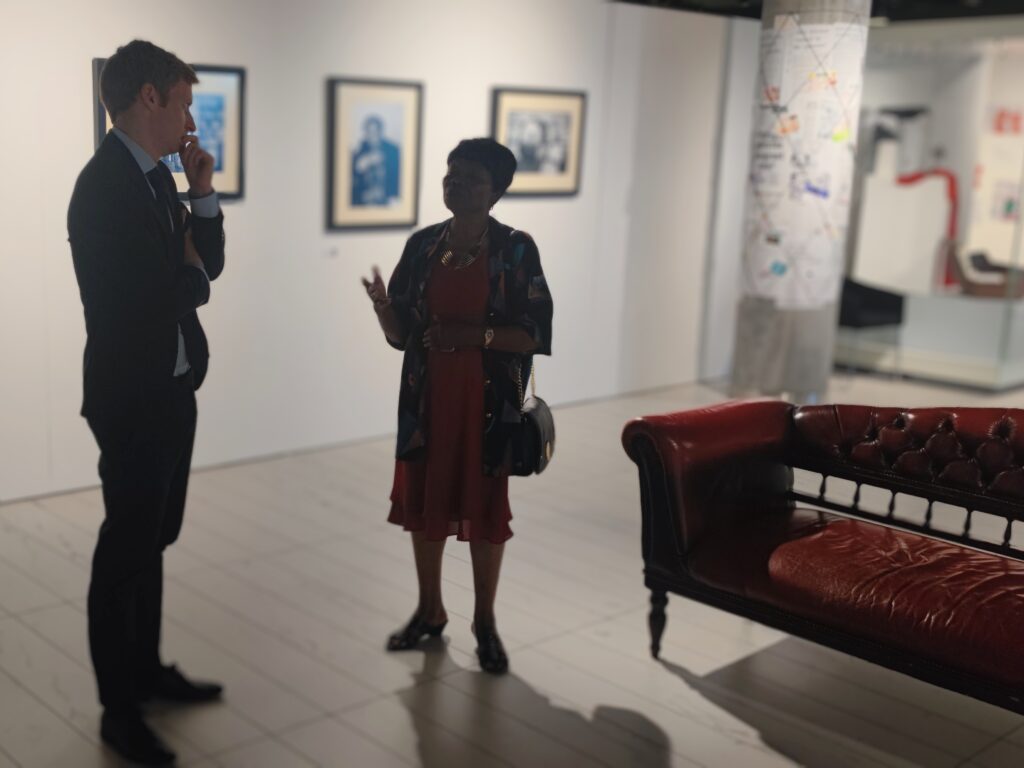
Mavis meets MP Lee Rowley at the Library of Birmingham on Windrush day 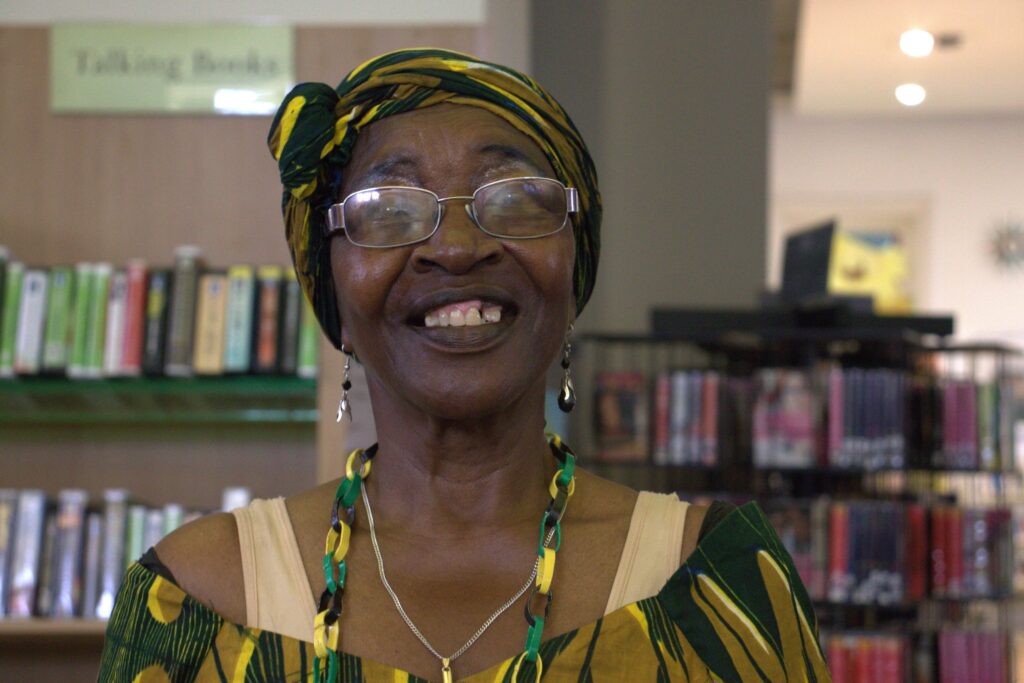
Sonya, Treasurer of Shades of Black and a key participant and presenter for ‘Meeting Windrush 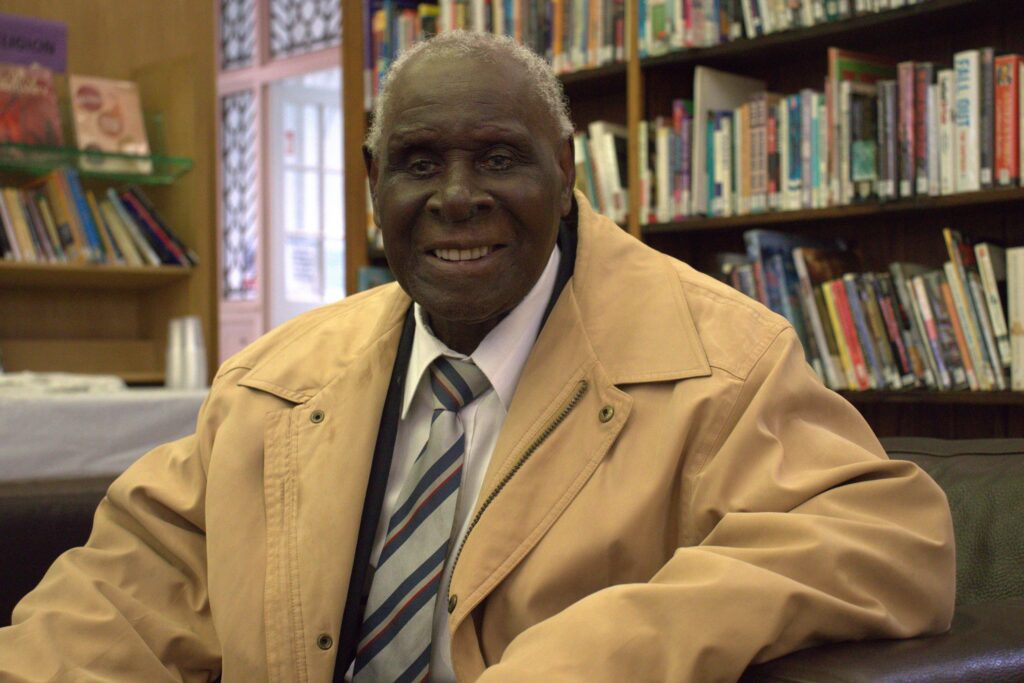
Gearge, proud of his contribution to our city and our Archives




